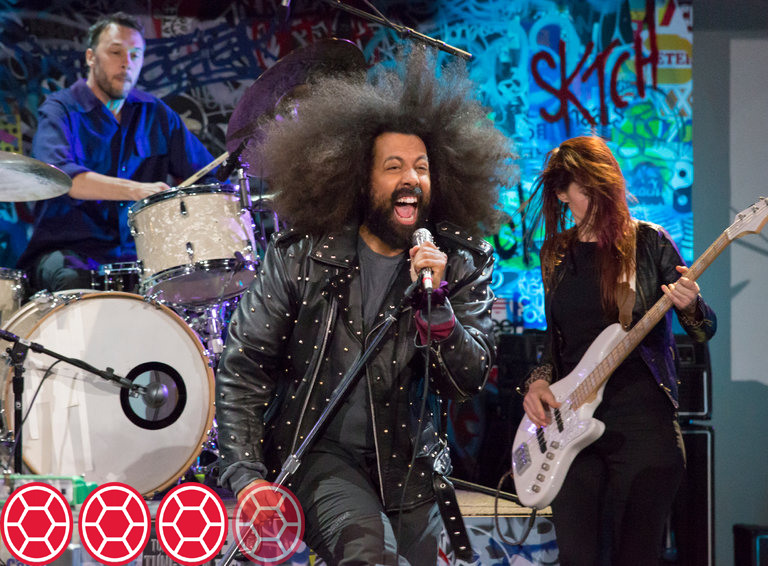Musical misdirection and meandering rants sprinkled with sage life advice — I’m not sure if this is what comedian and musician Reggie Watts wanted his latest Netflix special to be, but that’s certainly what it feels like. In Spatial, Watts forces you to question why the things he says are funny. His comedy is held up by the two strong but wildly different pillars of ridiculousness and social commentary.
His special opens the way that most do, with a cloaked figure marching onto the stage and discussing fictional, intergalactic politics. The hooded mystery character, who warns us about weapons shipments and a vestibule that has been opened, doesn’t appear to be Watts, though it is his voice.
Again, in typical fashion, he starts the show in the crowd and crawls on all fours through his audience. At this point, we were wondering why he had fallen back into the classic tropes of comedy. Is Watts washed up? What has come over him?
He puts our fears to rest when he gets on stage, dressed in all black with a leather jacket and suspenders over a shirt that says “chaotic good.” “Welcome to the — here it is,” he announces with comedic ineptitude.
The show is a series of musical acts and improvised sitcom scenes featuring two other comedians. These stand-alone segments are tied together by monologues, and by monologues I mean something resembling the rantings of an arrogant 9-year-old who just read a metaphysics textbook and is now giving a TED Talk covering what he learned. Other times they were impressions of loud, haughty comedians. Sometimes the monologues made me worry that he had multiple personality disorder. That is not hyperbole — it seems like this is what Watts wanted to happen.
At one point he goes from asking a crowd member if she remembered a fake anecdote about mitosis to asking people if they have any guns. The quick turns from one subject to another were as jarring as they were hilarious.
The musical acts are based around beatboxing and applying various audio effects to his voice. They often involved incomprehensible noises and goofy gestures and dancing that anyone other than Watts would consider embarrassing.
The crowning jewel of the show is the final segment, a musical act that he says is about apples. While the word apples never appears in the song, it is still worth listening to. It starts with a dismantling of human jealousy and suddenly moves to a feel-good, upbeat song making the case for living only for happiness and love.
Several minutes into the song, after a scat solo, Watts shows his true singing ability when he belts out, “Hey, oh baby, I like the way that you smile at me,” with outrageous emotion. He doesn’t dwell on this, and quickly reverts to his peculiar voices and delivery.
The show is filled with criticism of our modern culture, if you can look past his oddities. If anything these quirks make the wisdom easier to swallow, like sugar with medicine (yes, that’s a Mary Poppins reference).
Watts has put together an oddity of performance art, more than comedy. It is much more than an hourlong tirade about public restrooms, traffic or any other typical topic of comedy. It is a wild collection of acts that make you think as much as you laugh. But only if you want to.
3/4 Shells



